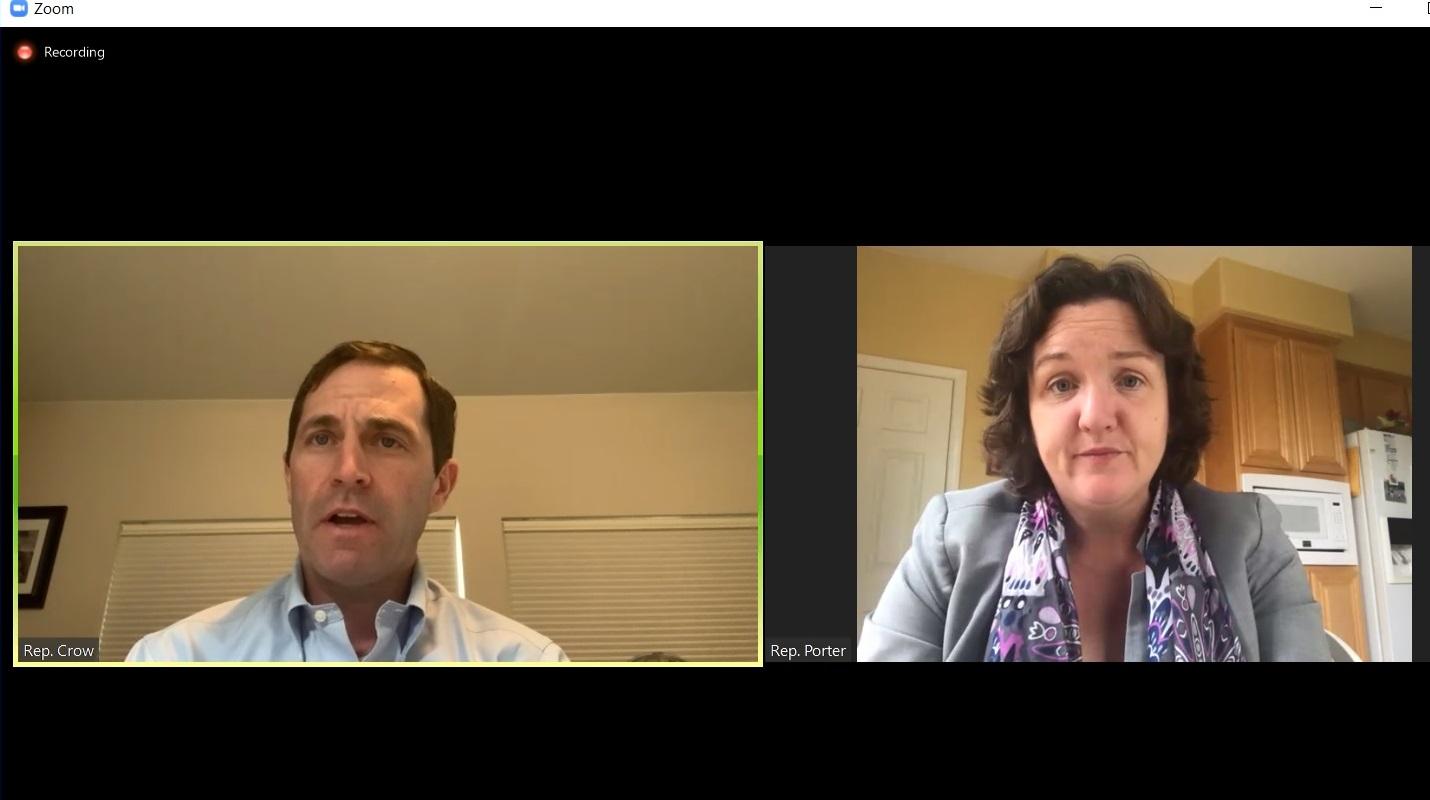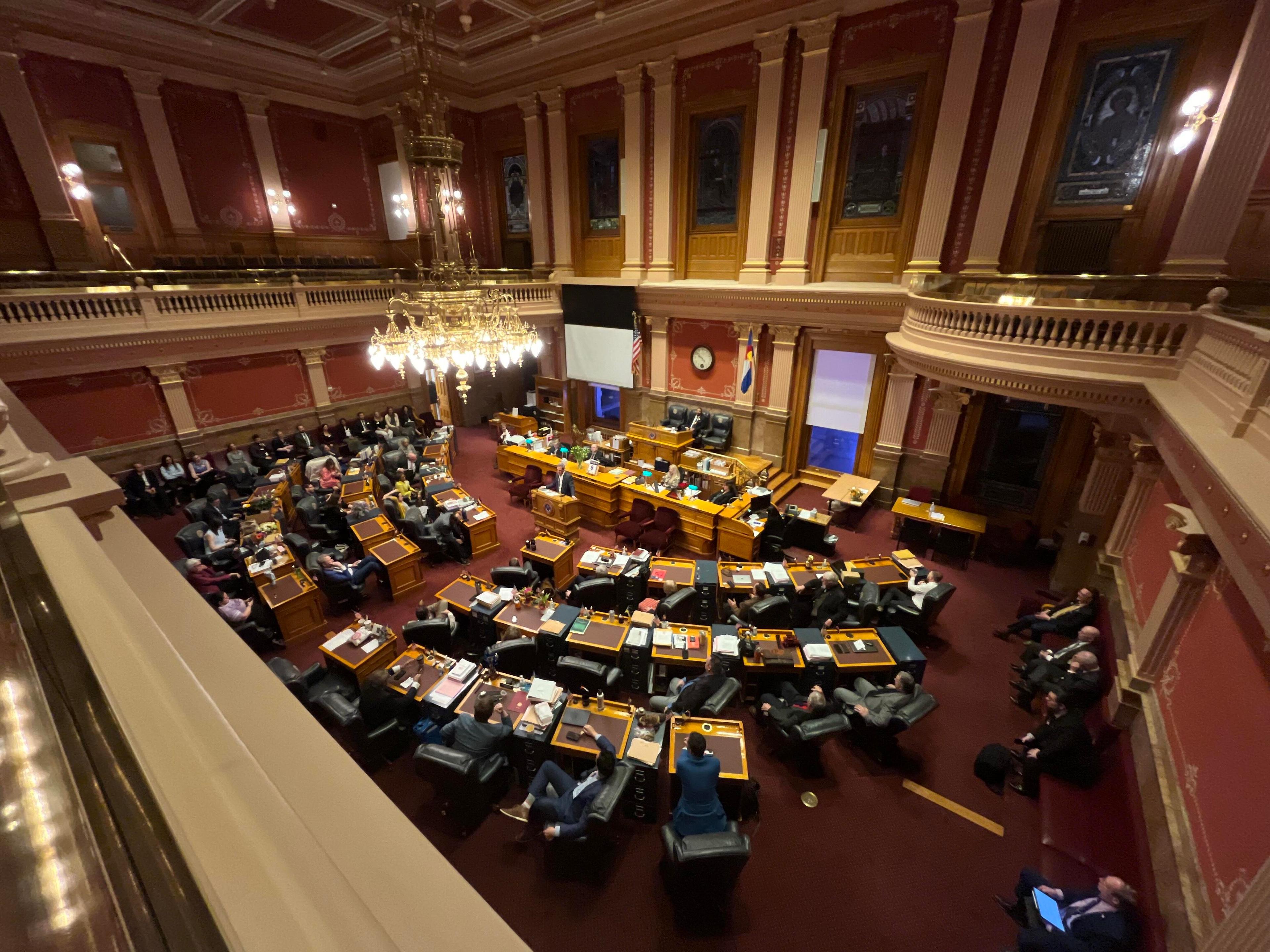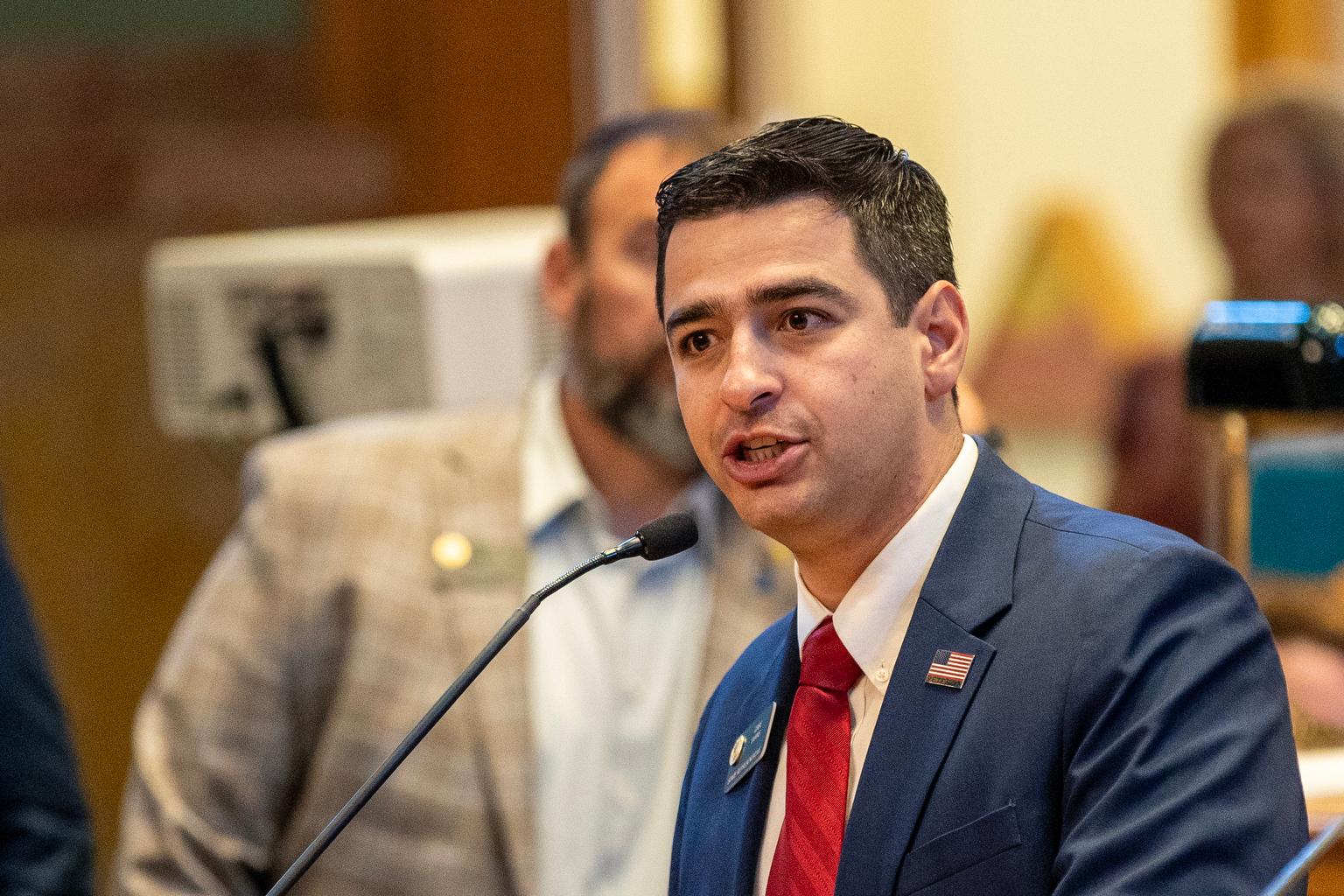
The word congress actually means a formal meeting. So for members of Congress, this period of social distancing has been challenging.
“We have not figured it out yet,” said Rep. Jason Crow, a Democrat. “We’re not, as a Congress, where we need to be in terms of remote work and technology.”
Crow is one person in favor of getting back to the Capitol, where lawmakers were put on an unscheduled recess through at least April 20. Crow said it’s necessary for the type of work that can only be done in person — like voting. A sped-up voting process called unanimous consent is one way Congress can try to pass measures without having to come back to the Capitol. But last week one such attempt in the Senate, which would have added more money to small business loans, failed.
There’s also an inability to access classified briefings, and Crow admits he’s worried about the risk of an intelligence failure.
“We’re doing what we need to do, and what’s important to do,” Crow said.
Republican Rep. Scott Tipton said the situation is unusual. “I think every member of Congress – House and the Senate – is doing the best that they can, but this is not the optimal way to do business,” Tipton said.
Typically, Tipton spends his weekends traveling throughout his district, which spans the western part of the state, meeting with officials and constituents. Nowadays, he’s at home, getting technologically nimble and encouraging colleagues to hit the mute button when they’re not talking.
“Just to be in one location for this period of time is something I haven’t experienced in quite a while,” he said. “And I look forward to being able to get back out and be able to see people face to face.”
It’s one thing when you’re the only one working from home, but it’s quite another when every other member of your family is, too, and you have children to raise and home school.
Democratic Rep. Ed Perlmutter said it took a while for him and his wife, a high school teacher, to find a work rhythm at home. He likes to wander while he works. She likes to sit and get things done. So, she’s set up shop in the home office, and he’s got the dining room table.
Like most politicians, Perlmutter is an extrovert who likes meeting people and shaking their hands.
“Now you have to keep your distance,” he said. “It adds this layer of awkwardness, I guess, that we’ll have to see how or when it leaves our consciousness and leaves our culture. It’s something very new, certainly for the Colorado culture.”
But as Democratic Rep. Diana DeGette points out, this is the new reality everyone is dealing with.
“Being at home all day long, and having to do your business by Zoom and conference call and every other way,” she said, “it’s not something I’d want to do on a permanent basis, I’ll tell you that.”
The Coloradans in Congress are all grateful that, unlike health care workers, grocery store clerks and other essential workers, they at least have the option to do most of their work from home.
Lawmakers have gone virtual — with town halls, press conferences, meetings, meet-and-greets, and speeches, pretty much where and when they can.
There has proven to be a silver lining to all this, said Rep. Joe Neguse, a Democrat.
“Our virtual town halls have also reached far more people than our in-person town halls typically did,” he said.
In the past, usually 250-300 people would show up, but he said his latest telephone town halls have averaged about 5,000 people. Republican Sen. Cory Gardner has been holding near daily telephone town halls, and said he’s reached over a million households in the state.









